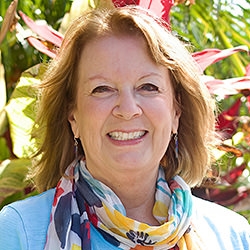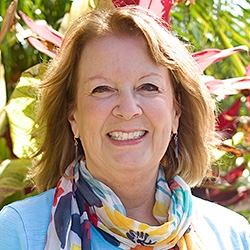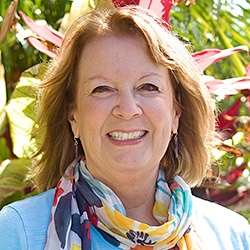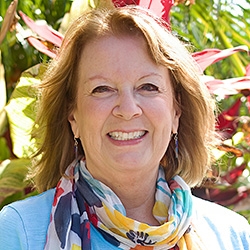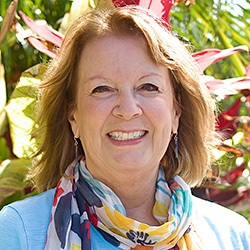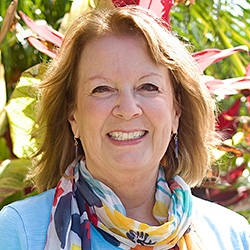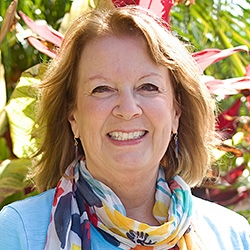
Search Results: pain
-
Yoram Mosenzon shares that the role of a mediator is often misconceived as solving conflicts, which can create stress and exacerbate the conflict. Instead, the true essence of mediation is about remaining untriggered, understanding the pain of the conflicting parties, and facilitating communication.
-
Ask the Trainer: "I'm part of a small, self-led NVC group that's been working together for almost two years. We are experiencing some growing pains in that we're still not certain how and under what circumstances to make requests, especially negative ones."
-
Less than 2 weeks ago from the time I’m writing this letter, Hamas militants crossed from Gaza into Israel and killed more than 1,300 people, most of them civilians. Israel then retaliated and killed over 3,000 Gazans, most of them civilians. The death rate continues to increase every day.
-
Here are seven self inquiry questions. Half of them can help you assess your NVC consciousness. The other half can help you move from pain, fear, resistance, judgement, criticism, and shame – to love, compassion, understanding, appreciation, curiosity, and more.
-
Ask the Trainer: "I have noticed that sometimes when I am in a story-telling mood I am usually trying to prove that I am right and once I connect with a need the urge to give all the information goes away."
-
Trainer Tip: Mourning enables us to heal the pain and gain clarity about how to meet our needs in the present moment.
-
One NVC principle is "stimulus vs cause" - one may be the stimulus but never the cause of another's feelings. When we're upset this principle can help us express pain without blame. However, when others are upset it's easy to slip into blaming them using this principle. Instead, we can hear their pain with care and heartfelt mourning - without guilt nor defensiveness, and whether or not we agree. All this is important if we're sincerely applying compassion. Read on for more.
-
Conflict is a normal and natural part of life. To varying degrees, it happens whenever two or more people consistently spend time together. Resolving conflict effectively and peacefully, in a way in which all parties feel respected and valued, does not feel natural for those of us who grew up with punitive, adversarial, or avoidant approaches to conflict. Eric offers some tips for approaching conflict.
-
Trainer Tip: On a scale of 1 to 10, how is your emotional bank account? If it’s lower than you like, consider what you can do right now to bring it closer to balance. Everyone in your life, and most especially you, will benefit from this. Even 15 mins of empathy may nourish you with accompaniment and perspective, even when the issues or circumstances in your life are the same.
-
Building your body and mind awareness can help you better regulate/calm your emotions. Regular self-empathy will help you better regulate your emotions as well as increase your body and mind awareness. If you are not aware of amygdala activation (fight/flight/freeze response), you will react instead of responding with choice. Use this eight-step process to develop your self-empathy/regulation skills.
-
Trainer Tip: Notice when you create stories about why something occurred. Commit to only observing facts. Then make decisions that are likely to give you relief and joy. For instance, if someone is late you may think that she’s inconsiderate or values another thing more than you. Instead, observe what you know—that she's later than agreed. From there, you could call her to find out what’s going on.
-
Ask the Trainer: "I'm practicing with 'transforming the pain of unmet needs into the beauty of the need.' In identifying my unmet needs, I come up with 'fairness.' However, fairness isn't on the needs list! I'm wondering what needs might be underneath 'fairness.'"
-
Listen to this short 3 session telecourse recording with CNVC Certified Trainer Christine King, and you will learn how to honor the wisdom that your anger, fear, shame and other BIG emotions have for you.
-
Sometimes even a very skilled empathy practicitioner can go into offering a non-empathic response, even when asked for empathy. Why? One reason could be that our brains might be less receptive because of unseen forces that affect our brain and relationship with others. This article speaks to the deeper "why" and also to one thing we could do to turn it around...
-
Trainer Tip: Notice an opportunity today to use honesty as a means to connect with someone else. Consider what type of honesty might stimulate pain in others.
-
Trainer tip: Comparisons are a form of judgment. The minute we compare ourselves to other people, we are setting ourselves up for pain and discouragement. We are setting them up too, and erecting a barrier between ourselves and them. Instead, notice how you feel about other people’s assets or foibles, and what needs come up for you. Read on for more.
-
Here's a daily self-acceptance practice you can bring into your life whenever you are experiencing pain, tension, contraction, lack of fulfillment, or unmet needs or values. Giving your often undesired experiences space can be a path to greater inner connection and peace.
-
Trainer Tip: If you are motivated by fear, guilt, blame or shame, your actions will usually be motivated by avoiding pain. The best way to experience permanent, lifelong change is to focus on how your life will improve when you make a change. Notice when you attempt to motivate yourself and others with guilt, blame, or shame today, and then look for motivations that enrich life instead.
-
Trainer Tip: Violence results from thinking that others caused our pain and deserve to be punished. The cause of our feelings is related to our own needs in the moment. What happened is the stimulus. Notice this when you are tempted to blame other people for your feelings, and try to discover your unmet needs.
-
When someone's in immense pain and uses words that are hard to hear, see if you can bring in as much attention and compassion as you would to someone who was cut with a sword. Focusing on what's important to them, and not so much on how it was said. This may support greater understanding and healing. Otherwise, we risk prioritizing needs, norms, and inequities of the dominant culture, over caring for people who bear the invisible brunt of such norms.



